
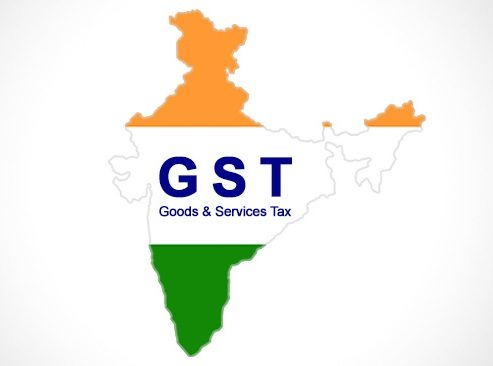
Indian tourism professionals: New Goods and Services Tax needs to be simplified
Rajendera Kumar, industry veteran, Director, The Ambassador Vivanta by Taj, New Delhi, has welcomed the recent introduction of the Goods and Services Tax (GST), but regretted that the hospitality industry has not been treated fairly.
A former president of the FHRAI (Federation of Hotel and Restaurant Association of India), Kumar says that the tourism industry will suffer because of the high and differential rate for various segments. He quoted the example of Singapore, where seven percent tax is applicable across the board.
Kumar feels that the restaurants in the hotels should have the same GST as the stand alone restaurants, which is five percent. At present, they have to pay higher rate.
Many industry players are finding the working of the GST difficult and would like it to be simplified.
Bhim Singh, managing director, Rajasthan Tours, based in Jaipur, says that he has left the GST to the accountants, as he is unable to understand the intricacies.
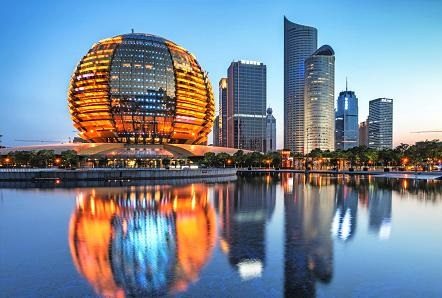
The one of World’s Top 15 Model Cities for Best Practices in Tourism
The United Nations World Tourism Organization (UNWTO) recently released its list of the World’s Top 15 Model Cities for Best Practices in Tourism. Hangzhou, China was included in the list for its innovative efforts in the protection and development of as well as continuous investment in the city’s historical and cultural resources.
In December 2016, UNWTO created an award recognizing the 15 cities worldwide considered by the organization as examples to emulate when it come to the adoption of best practices in tourism, among its 193 member countries. UNWTO plans to expand the best practices applied by the winners in other global destination cities. UNWTO selected 15 winners based on the results of a survey and a performance evaluation program conducted by a panel of judges at a special evaluation meeting held in September 2017.
Hangzhou applied for the Tourism’s Impact on Community and Culture category and was evaluated by the UNWTO. It was the first time Hangzhou competed for an award based on international tourism standards with the goal of taking its tourism sector to the next level and being benchmarked against international standards. The city has achieved a breakthrough with its presence at the evaluation.
Hangzhou was selected for inclusion in the list, thanks to its years of efforts in transforming the city into both an international tourism destination and an international city, as well as in enhancing the appeal of its local culture. The city highlighted its international marketing competitiveness by having itself benchmarked against the world’s most known tourism destinations and by leveraging its unique tourism resources. Chinese President Xi Jinping had made a point of promoting Hangzhou’s tourism resources at the G20 Summit held in Hangzhou in 2016, immediately raising the visibility of the city worldwide and cementing the city’s reputation as a go-to destination.
The honor will help Hangzhou accelerate its transformation into an international city as well as assist city managers in showcasing their achievements in terms of best practices for the tourism sector. In addition, the Hangzhou Tourism Commission was invited by UNWTO to give a presentation on best tourism practices at the UNWTO Annual Conference to be held in Kuala Lumpur in December 2017. Hangzhou was the only representative for model cities in the Asia Pacific region to attend the event.
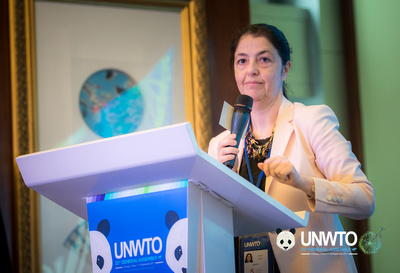
Carlos Vogeler not fired by UNWTO
On December 9, WorldTourismWire published an article entitled UNWTO Revenge: “Zurab Pololikashvil fired Carlos Vogeler.”
This headline was now changed to “Zurab Pololikashvil will not keep Executive Director Carlos Vogeler.” Why did WorldTourismWire change this headline?
There are many different sources of information this wire and eTN receives about UNWTO activities, including from an “anonymous chat group, from press statements, insiders and UNWTO members.” Carlos Vogeler has never been one of these sources. When eTN published the headline the word “fired” was not meant to be taken literally but it may have been inappropriate and confusing. eTN should have checked with Mr. Vogeler directly to include his “official version” of the situation.
Here are the facts: The contracts for all four executive directors in the World Tourism Organization are subject to expire December 31, 2017. According to eTN sources, three of the current executive directors will remain employed by the organization in one form or the other. The only current executive director not kept employed is Carlos Vogeler. Couldn’t this be interpreted as being “fired” in a way?
Strong and reliable sources told eTN, Mr. Vogeler asked for an extension for personal reasons, but this was denied by Zurab. eTN will honor Mr. Vogeler’s request to abstain from making reference to his personal circumstances and those of his family.
Mr. Vogeler wrote to eTN on December 21 saying that the article on December 9 was written without his previous knowledge or consent. This is true. eTN did not contact Mr. Vogeler prior to writing the article, nor would eTN need anyone’s permission to do so.
Mr. Vogeler’s sees his own situation different: “The article indicates that I have been fired from UNWTO which is a totally false affirmation. My contract, once I reached the retirement age of 62 as per UN rules, is due to end on 31st December 2017. This date coincides with the end of the term of the current Secretary-General Mr. Taleb Rifai, whose Senior Team I have been proud to serve. Consequently, this is the end of my contract and not a dismissal and all my pension rights have been totally respected by the Organisation. ”
Mr. Vogeler continued to say, he had been very honored and is proud of his professional career at UNWTO during all these years.
After again checking with sources, this publication stands behind its previous article and assertion about the likelihood of a “revenge”, even though Mr. Vogeler feels and clearly said in his letter this word was false and offensive to him. eTN today again checked a third time with sources close to the situation to come to this conclusion.
eTN will continue to monitor the situation and remains confident, that the previous evaluation on this issue was a correct assessment of the situation. eTN did not agree to remove the original article.
Nothing, of course, has been officially announced yet by the new Secretary General. When the new 107th session of the newly elected Executive Council met on September 16 in Chengdu. It was fully expected, as is the long-standing UNWTO tradition for any newly confirmed Secretary-General to present his deputy, and the rest of his executive team.
Curiously, this did not occur, because Pololikashivili wasn’t “ready”. Pololikashivili asked outgoing Secretary-General Taleb Rifai to push back the presentation and announce an extraordinary session of the Executive Council on the sidelines of the FITUR trade show in January 2018 in Madrid. Rifai announced this prominently at the 107th Executive Council meeting.
Some weeks later the minutes of this meeting was posted to the UNWTO website, yet there is not a single word about the incoming executive team presentation that was being rescheduled. Mysteriously it states the 108th Executive Council meeting will be hosted in Madrid in the first half of 2018.
“Mr. Vogeler will leave UNWTO on December 31 and we wish him the very best for his future. Mr. Vogeler has made a difference to UNWTO and can take credit for a lot of amazing success stories. He will be remembered”, says eTN Publisher Juergen Steinmetz.
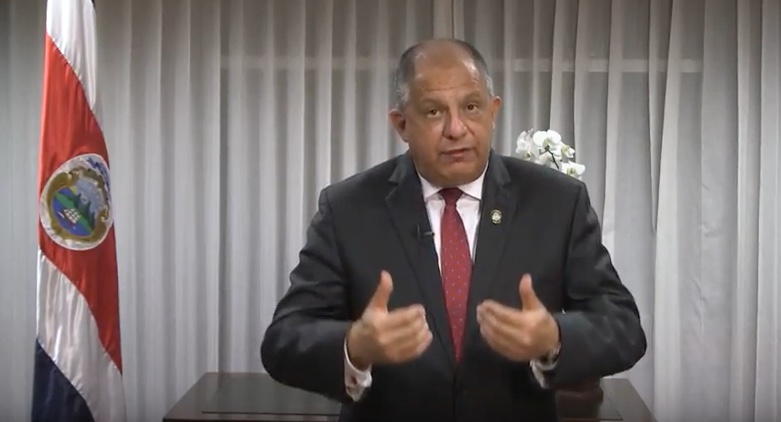
Message by the President of the Republic of Costa Rica on the occasion of the IY2017 closing
The president of the Republic of Costa Rica spoke at the closing of the UNWTO year of Sustainable Tourism for Development
The United Nations 70th General Assembly had designated 2017 as the International Year of Sustainable Tourism for Development – and the President of Costa Rica relates his version and result.
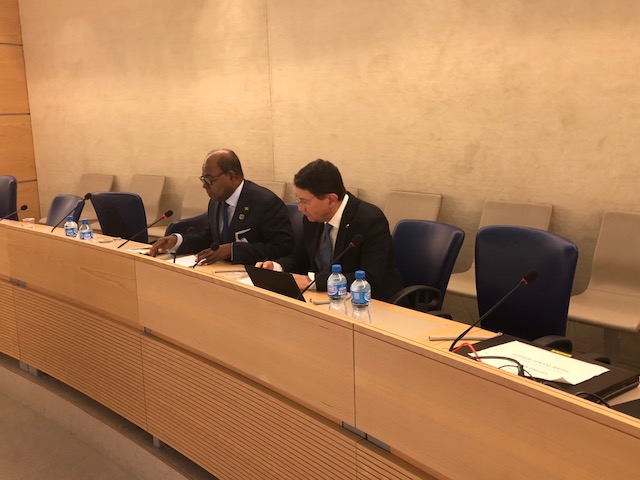
Minister Bartlett Signs Montego Bay Declaration in Geneva
KINGSTON Jamaica; December 19, 2017: Minister of Tourism Hon. Edmund Bartlett and the outgoing Secretary General of the United Nations World Tourism Organization (UNWTO), Dr. Taleb Rifai today (December 19, 2017) signed the Montego Bay Declaration which will chart the course forward for a sustainable tourism world agenda.
Following the signing, which took place during the UNWTO’s Closing Ceremony for the International Year of Sustainable Tourism for Development 2017, in Geneva, Switzerland; Minister Bartlett stated that, “the Montego Bay Declaration cements our legacy in the industry’s history books forever.”
The Declaration is one of the major outcomes of the recently concluded UNWTO, Government of Jamaica, World Bank Group and Inter-American Development Bank Global Conference on Jobs and Inclusive Growth: Partnerships for Sustainable Tourism, held at the Montego bay Convention Centre from November 27-29, 2017. It has been described as a blueprint for global tourism sustainability issues that will inform the next set of global millennial goals.
Building on the legacy of the International Year of Sustainable Tourism for Development 2017, which had the objective of setting a common action plan towards 2030, the Declaration which is a 15-point action plan, also highlights two principal points which the Minister believes are pertinent to the development of Jamaica’s tourism sector.
He noted that it outlines the need for Governments, private sector, donors and international and regional organisations to support the establish recommendation for the establishment of a Global Tourism Resilience Centre in the Caribbean.
“I am very pleased to share that the declaration not only has the support of the UNWTO but also the international community at large, who have expressed particular interest in the proposal to establish a Resilience Centre to mitigate the possible impact of disasters. We are currently in discussions with key stakeholders who I am certain will be giving their official endorsements soon,” said the Minister.
The Declaration also highlights the need for multilaterals to channel development financing to Small and Medium-Sized Tourism Enterprises (SMTEs), which drive 80 percent of global tourism and are important to the development of Jamaica’s second biggest employer and foreign exchange earner.
The aim of the closing ceremony was to bring the international community together to commit to realizing the universal 2030 Agenda for Sustainable Development through tourism, at the national and global level. Most importantly, it brought to a close, the initiatives and actions initiated this year to provide a roadmap for the global community at large to embrace sustainable practices and maximize the engagement in the global development agenda.
Minister Bartlett is scheduled return to the island on December 21, 2017.
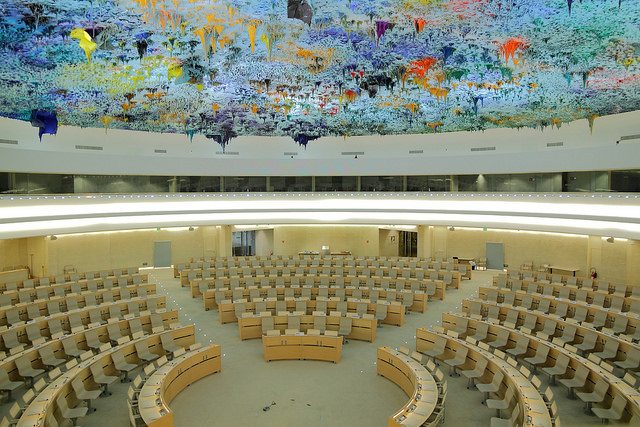
UNWTO sets tourism roadmap towards 2030 at the Palace of Nations in Geneva
Participants from around the world joined the Official Closing ceremony of the International Year of Sustainable Tourism for Development 2017 at the Palace of Nations, in Geneva, Switzerland. The event reviewed the year´s main achievements and discussed the roadmap for advancing the contribution of tourism towards the 2030 Agenda for Sustainable Development.
“2017, the International Year of Sustainable Tourism for Development, has been a unique opportunity for all of us to come together to promote the contribution of tourism to shape a better future for people and planet and to contribute to making this world a better place.“ said UNWTO Secretary General, Taleb Rifai, opening of the event. “We count on you as we embark on this exciting new journey towards 2030. I trust that together, as a sector, as people with the same vision and commitment, we will go far.” he added.
“Sustainability remains the bedrock of our activity. We will continue to drive the conversation on planning for and managing tourism growth, define a sector-wide response to climate change, work on how the sector can reduce illegal trade in wildlife and contribute to inclusive job creation” said Gloria Guevara, President and CEO, World Travel & Tourism Council (WTTC)
“It is so important that we succeed in making tourism sustainable by making sustainable tourism economically viable, culturally accepted, and universally practiced.” said Michael Møller, Director General, United Nations Office at Geneva (UNOG). “The United Nations World Tourism Organization deserves great credit for tackling this head on throughout this past year.” he added.
“I personally believe that the future of tourism lies in enabling ICT capacities. Accordingly, we should harness those powers for smart tourism… I believe that the way forward in our journey to 2030, is smart tourism. I call on all of you to guide me and support me in this endeavor” said Talal Abu-Ghazaleh, Chairman, Talal Abu-Ghazaleh Organization in Jordan.
”In the future, a strong international cooperation of all relevant actors involved in the tourism sector should become the driving force to promote sustainable tourism and to implement tourism policies efficiently” said Marie-Gabrielle Ineichen-Fleisch, State Secretary Economic Affairs (SECO) of Switzerland.
Addressing the event was also HM King Simeon II, Special Ambassador of the IY2017 who stressed the importance of public/private partnerships for sustainable tourism.
The panel discussions counted with the participation of the Ministers of Tourism of Costa Rica, Mauricio Ventura, Jamaica, Edmund Bartlett and Kenya, Najib Balala alongside representatives of IY2017 partners such All Nippon Airways, Amadeus, the Balearic Islands Tourism Agency, ECPAT International, the Institute for Tourism and Leisure, HTW Chur University in Switzerland, Minube, Myclimate, PRMEDIACO and the Ras Al Khaimah Tourism Development Authority in the United Arab Emirates.
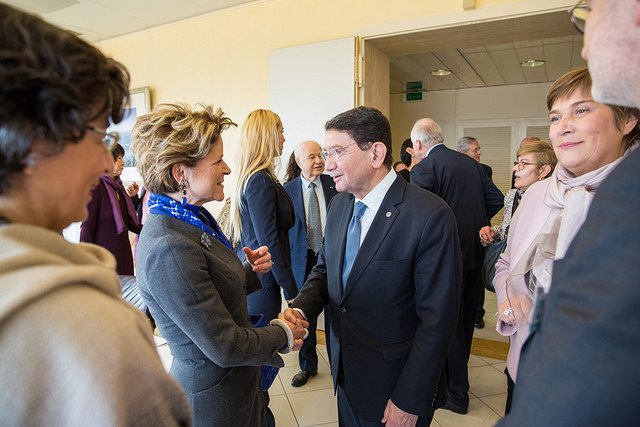
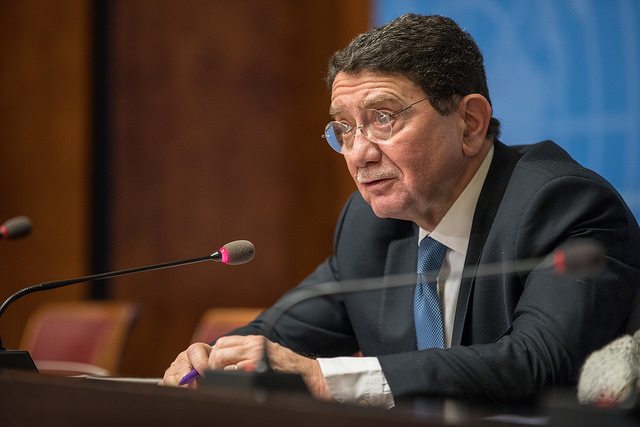
As part of the legacy of the IY2017, UNWTO presented the results of the ‘Tourism and SDGs’ Report developed in collaboration with the United Nations Development Programme (UNDP). The report which looks into the links between tourism and the SDGs in national policies as well as private sector strategies shows the relevance for the sector of Goals 1 (No Poverty), 4 (Quality Education), 8 (Decent Work and Economic Growth), 11 (Sustainable Cities and Communities), 12 (Responsible Consumption and Production), 13 (Climate Action), 14 (Life Below Water) and 17 (Partnerships for the Goals).
On the occasion, UNWTO launched the Tourism and the Sustainable Development Goals Programme as a legacy of the International Year of Sustainable Tourism for Development 2017. The Programme aims at advocating for the contribution of sustainable tourism´s to the 17 SDGs and encouraging the full integration of tourism and the SDGs in national, regional and global agendas. It includes the future ‘Tourism and SDGs’ online platform – a co-creation space to inspire and empower the tourism sector to act – developed by UNWTO with the support of SECO and an Ambassadors Initiative.
The Tourism and SDGs Ambassadors designated on the occasion include HE Shaikha Mai bint Mohammed Al Khalifa, President of Bahrain Authority for Culture and Antiquities, the President of Costa Rica, HE Luis Guillermo Solís, Mr. Huayong Ge, President of UnionPay China; Dr Talal Abu Ghazaleh, Chairman of the Talal Abu-Ghazaleh Organization and Dr Michael Frenzel, President of the Federal Association of the German Tourism Industry.
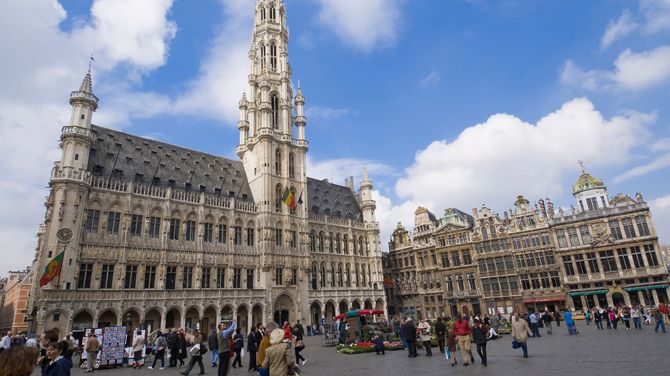
UNWTO and European Commission address the significance of the Tourism Satellite Accounts to measure the economic impact of the sector in Europe
The World Tourism Organization (UNWTO) and the Directorate-General for Internal Market, Industry, Entrepreneurship and SMEs (DG GROW) of the European Commission gathered national tourism policy makers and statisticians in Brussels to advance in the implementation of the measurement of the economic impact through Tourism Satellite Accounts.
As part of the events connected to the 2017 International Year of Sustainable Tourism for Development, and within the framework of the cooperation between UNWTO and DG GROW, the two institutions co-organized the Workshop “Measuring the economic impact of tourism in Europe: the Tourism Satellite Account (TSA)”, in collaboration with Eurostat. The event, hosted by DG GROW, was held in Brussels, Belgium on 29-30 November, 2017.
Bringing together over 100 policy makers (data users) and tourism statisticians and TSA compilers (data producers) from EU Member States and COSME [1] countries, the Workshop helped to bridge better understanding and entice collaboration amongst these key stakeholders.
“The economic importance of tourism in the European Union is increasingly recognized and better understood, partly thanks to the development of TSA in some EU Member States. It is important to create cohesion around this theme and we hope that the EU becomes an example in this regard to guide the rest of the regions,” said UNWTO Secretary-General Taleb Rifai.
A sense of optimism for tourism measurement and TSA in Europe emerged, alongside the realization that TSA is beyond a technical exercise, very much a strategic endeavor for the tourism sector.
The workshop was conducted with expertise from the European Commission (including Eurostat), UNWTO, UN Statistics Division (UNSD), Statistics Austria, the National Statistical Office of the Czech Republic, Destination Canada and Statistics Malaysia.
The topics debated ranged from technical inputs to governance issues and political leadership, all elements necessary for a successful TSA implementation. The participants exchanged ideas on the current status of the different national TSAs, their specificities and how to build the capacities and enabling environments for furthering their development. A key conclusion was that the challenges of TSA development in Europe have less to do with technical expertise and more with resource, communication, and political engagement.
The discussions have also emphasized the need to improve timeliness, while maintaining credibility, and fostering partnerships and dialogue between data producers and users. Reliable aggregated TSA estimates are key for strong tourism policy making which aims to support a sustainable and resilient tourism sector.
TSA is an instrument to measure and monitor the economic impact of tourism and links data on tourism to the broader economy. It is an accounting framework enabling the measurement and international comparison of the contribution of tourism to job creation, economic growth and the generation of wealth.The Conference held under the patronage of H.H. Sayyid Fahd bin Mahmoud al-Said, Deputy Prime Minister for the Council of Ministers of Oman, brought together Ministers of Tourism and Ministers of Culture as well as private sector stakeholders and experts with the objective of building and strengthening partnerships between the tourism and culture sectors and enhance their role in the UN’s 2030 Agenda for Sustainable Development.
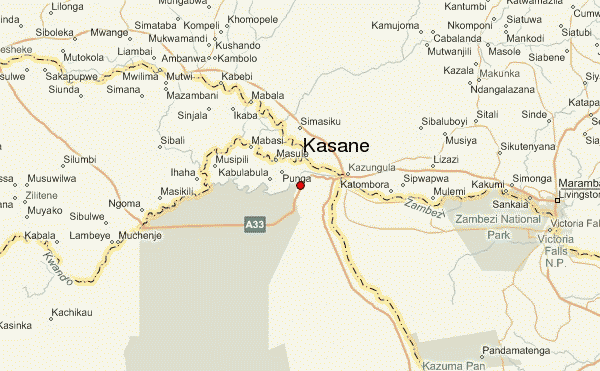
Botswana hosts the International Symposium and Annual Conference of the 10YFP Sustainable Tourism Programme (STP)
Kasane, capital of Chobe District in Botswana, hosted tourism stakeholders to exchange experiences and knowledge of innovative approaches to enhance tourism and conservation planning, financing and marketing. Under the theme “Empowering Tourism Destinations’ Sustainability through Innovation”, the 10YFP STP International Symposium and Annual Conference also discussed the role of the tourism sector in fighting climate change.
Inaugurated by Tshekedi Khama, the Minister of Environment, Natural Resources Conservation and Tourism of Botswana, the event began with a debate on how to market sustainability to trigger change among consumers. A second panel highlighted the relevance of integrating circular economy approaches into the tourism value chain to minimize waste, emissions and energy leakage at all stages of production. It also discussed the links between the tourism sector and the Paris Agreement, and the key role of destination managers therein.
The value of wildlife as a key asset of destinations was underlined in the third panel, dedicated to sharing experiences on wildlife tourism and its capacity to foster conservation given suitable financing frameworks. The last discussion focused on the application of new technologies – particularly geographic information systems and big data – to tourism planning, with the objective of promoting evidence-based decision making and increased synergies between tourism and conservation policy makers and practitioners.
‘The Tourism We Want’, a call to action to guide the network in the years to come
The second day of the event served to prepare the Kasane Call to Action for Sustainable Consumption and Production in Tourism under the title ‘The Tourism We Want’. The role of the 10YFP STP in the implementation of the Sustainable Development Goals (SDGs), particularly SDG 12, was debated through consultations among all participants aimed at identifying the priorities for the 10YFP Network in the coming five years. “The Tourism We Want” is the Network’s contribution to the legacy of the International Year of Sustainable Tourism for Development, which is being celebrated throughout 2017.
Partnerships and networking essential tenets for the implementation of the 2030 Agenda
Biodiversity and wildlife were present in most of the discussions, as well as the need to work in partnership with stakeholders of a diverse nature to advance shared goals and to multiply results. With 19 countries represented, the event was a good example of this approach: 40% of the over 100 attendees came from the private sector, 30% from NGOs, and 10% each from media, government and international organizations, including five different UN agencies and programmes.
The event was hosted by the Botswana Tourism Organization and co-organized by UNWTO and the governments of France, Morocco and the Republic of Korea, with support from the 10YFP Secretariat and UN Environment.
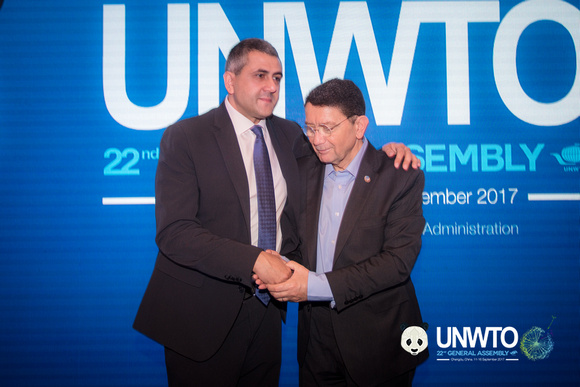
UNWTO Holiday Staff Party: Zurab Pololikashvili showed up and left everyone in suspense
Zurab Pololikashvili showed up at the traditional holiday party on Friday – and the rest is worth a story leaving 100+ staffers in suspense.
On Friday the 100+ UNWTO employees and politically appointed directors gathered for their traditional and annual holiday party lunch in Madrid. All directors, the outgoing Secretary General and the rest of the 100+ staff many with their spouses attended and were anxious to hear about what’s next for the UN special agency and how changes would affect their jobs.
The lunch was also a farewell to Taleb Rifai from Jordan, who had steered the organization with a heart, talent and success like never seen before over the last eight years.
In less than two weeks on January 1, 2018, the new UNWTO Secretary-General Zurab Pololikashvili from Georgia will be in the driver seat for world tourism, and this is becoming an uncomfortable reality for many these days.
Friday was a last chance for Zurab Pololikashvili to put his future staff at ease and to say a word of thanks to Taleb Rifai, his future predecessor. After all, without Rifai’s support for Zurab the outcome at the recent election for SG could have been very different. Without a doubt, Zurab Pololikashvili has a lot to be thankful for when it comes to Taleb Rifai.
Zurab Pololikashvili has not been attending many meetings or events after his confirmation in September, so hopes were high on Friday when the new boss showed up for the party. There are so many questions, about Zurab’s plans are for the new UNWTO. Many of the staff were anxious to learn about any changes in leadership or wanted to be put at ease about their own future role.
“You can see the sign of relieve on many faces when Zurab was spotted”, someone attending the lunch told eTN.
Everyone was ready to hear Secretary General-Elect Zurab Pololikashvili speak, but instead, he got up early and left quietly without saying a word. No thank you to Taleb Rifai, no happy holidays to the staff, and no word on what his plans are for 2018.
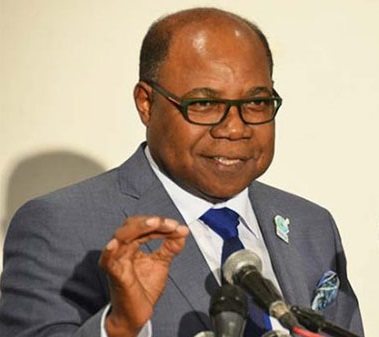
Bartlett to Present the Montego Bay Declaration at UNWTO Conference in Switzerland
KINGSTON, Jamaica; December 17, 2017: Minister of Tourism, Hon. Edmund Bartlett travels to Geneva, Switzerland today (December 17, 2017) , to present the recently unveiled Montego Bay Declaration, to delegates attending the United Nations World Tourism Organization’s (UNWTO) Closing Ceremony for the International Year of Sustainable Tourism for Development 2017.
“The Declaration of Montego Bay will become incorporated in the documents and the outcomes of the International Year of Sustainability. This is the perhaps the biggest legacy that we could hope for as a small destination – that our name will be indelibly etched in the lexicon of tourism references so that children yet unborn, will know that Montego Bay existed,” said Minister Bartlett.
The 15-point Declaration was one of the major outcomes of the recently concluded UNWTO Global Conference on Sustainable Tourism held in Montego Bay from November 27 to 29. It was first presented by Minister Bartlett and Executive Director of the UNWTO, Carlos Vogeler, on November 29 at the Montego Bay Convention Centre in St. James.
The Minister received the invitation to make the presentation from the UNWTO’s outgoing Secretary General Dr. Taleb Rifai, for the event which will take place on December 19, 2017.
“One of the elements I am most excited about from the Declaration is the establishment of a Global Resilience Centre – which we need here in the Caribbean, especially to build the capacity to respond to natural disruptions. Now the Caribbean, and Jamaica, will be the centre of an international resilience centre that will have the attention of the world,” he said.
The Minister also revealed that preliminary discussions have begun with representatives from the University of West Indies, Mona to establish the centre at their facilities. He also noted that 18 institutions from across the globe, have already indicted their willingness to work with Jamaica to establish the centre.
The United Nations designated 2017 as the International Year of Sustainable Tourism for Development. In the context of the universal 2030 Agenda for Sustainable Development and the Sustainable Development Goals (SDGs), the International Year has promoted the change in policies, business practices and consumer behaviour towards a more sustainable tourism sector that can contribute to all the 17 SDGs.
The aim of the closing ceremony is to bring the international community together to commit to realizing the universal 2030 Agenda for Sustainable Development through tourism, at the national and global level. Most importantly, it brings to a close, the initiatives and actions initiated this year to provide a roadmap for the global community at large, to embrace sustainable practices and maximize the engagement in the global development agenda.
Minister Bartlett is scheduled return to the island on December 21, 2017.
